Friends and Neighbors,
As we near the halfway point of the legislative session, committee hearings are getting longer, more bills are being heard, and we’re beginning to set the framework for our new state budget. It’s a lot of work, but I’m grateful for the opportunity to discuss our progress. Here is what my colleagues and I have been working on at the Capitol:
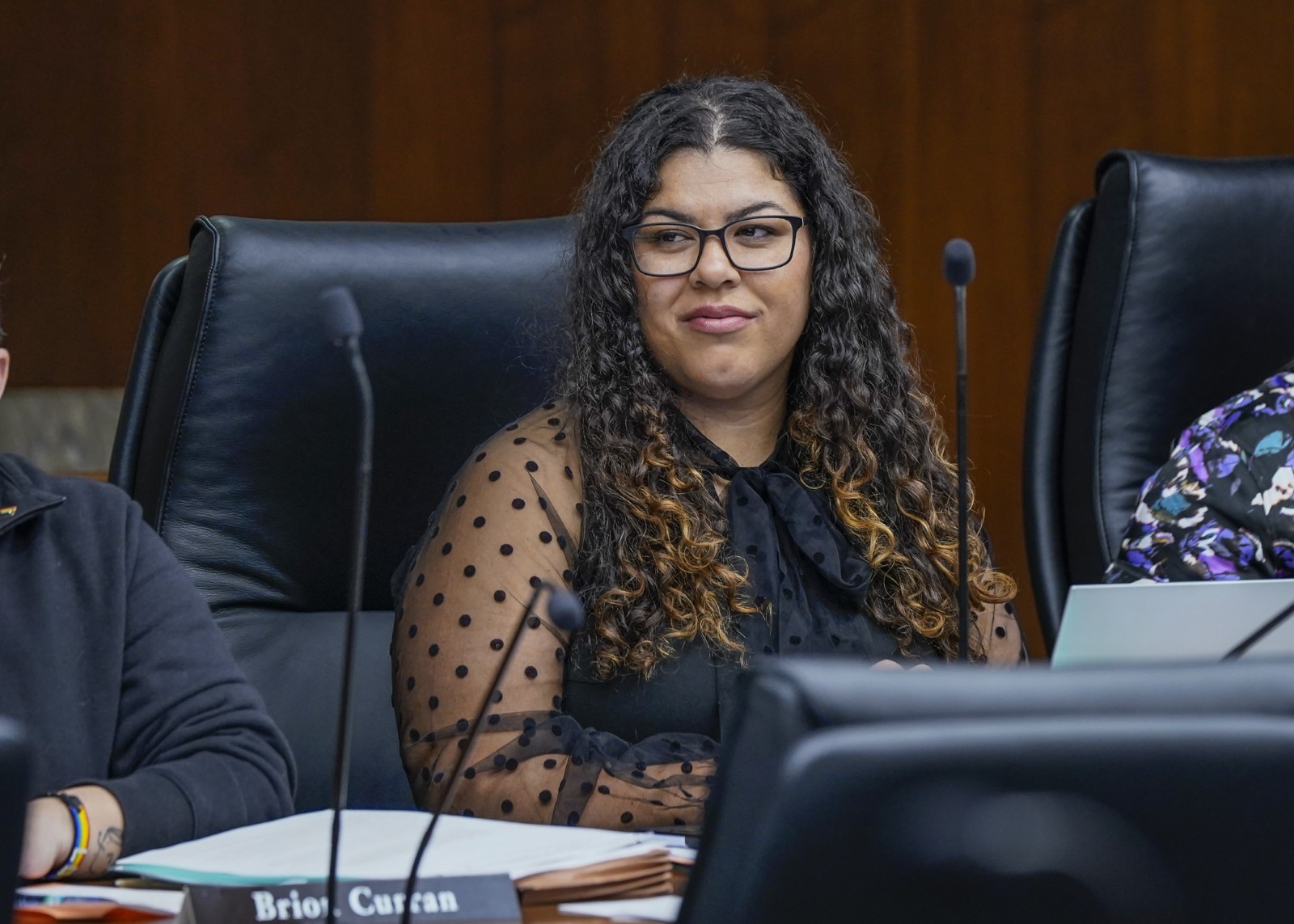
Grants for Electric Panel Upgrades
On March 7th, HF 849, was heard in the Climate and Energy Finance and Policy Committee. This bill creates a program in the Department of Commerce to award grants to owners of residential buildings to upgrade the buildings’ electrical panels. I have heard from many constituents in our district that their 100+ year-old homes are struggling in their ability to provide electrical use. It is an investment in equity and access as folx from low-income and moderate-income households have the chance to participate in the energy transition. It provides residents the ability to update their electric panels, and safer homes by replacing out-of-date fuse boxes with modern circuit breakers and creates more jobs in the electrical field.
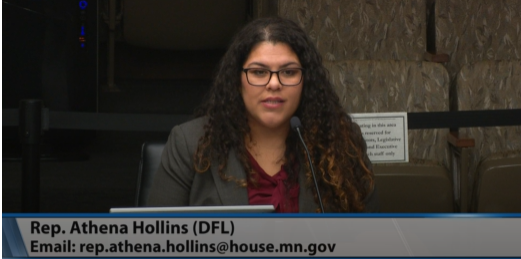
Minnesota Crime Victims Reimbursement Act
On March 14th, my bill HF 1713 was heard in the Public Safety Finance and Policy Committee. This bill would improve a victim-survivor's ability to access reimbursement program. Victim-survivors must build courage and huge strength to leave an abusive relationship and it can leave the survivor with anxiety, post-traumatic stress, flashbacks, inability to trust, isolation from friends and family, and with a feeling of fear, anger, resentment, and low self-esteem. In addition to the social and emotional traumas a victim-survivor faces, financial woes can add up during their healing process. We must increase accessibility to people who are victims of crimes to help them as they take back their lives and create a path for healing and recovery.
Zero-Waste Grant Program
On March 15th, my legislation to create a zero-waste grant program was heard in the House Environment and Natural Resources Finance and Policy Committee. I am carrying this bill because Minnesota is facing a waste crisis. One key piece of addressing the crisis is investing an infrastructure to support the zero-waste economy. This bill establishes a grant program for small businesses, non-profits, and local governments to overcome start-up barriers and support their efforts to reduce, reuse, and recycle waste. The zero-waste grant program will invest in source reduction and use, electronic reduction and recycling, market development, recycling and compost infrastructure and environmental justice areas in rural communities.
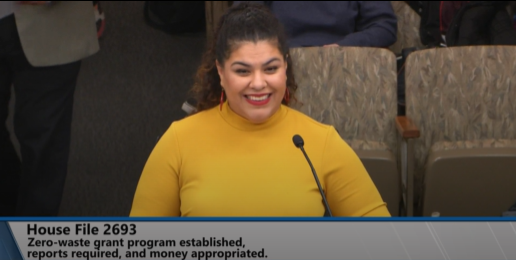
Prosecutorial and Law Enforcement Training
I have advocated and proudly carried HF 1836 since coming to the Legislature. The bill was brought to me by the Minnesota County Attorney’s Association and would appropriate funds for a grant to law enforcement and prosecutors. It is critical now more than ever to ensure our future generation of prosecutors and people working in the public sector as attorneys have cultural competency training among other professional development opportunities to refine and enhance their skills. Having more training opportunities for our justice system and justice partners is imperative to improving a well-functioning and capable system.
Reproductive Freedom Defense Act
Last night, the Minnesota House of Representatives passed the Reproductive Freedom Defense Act legislation with a 68-62 vote, chief authored by Rep. Esther Agabje (DFL-Minneapolis). The bill protects the privacy and rights of persons receiving or providing reproductive health care in the state.
Bodily autonomy is a right, and we took a critical step in protecting that for more people and providers. The Reproductive Freedom Defense Act will protect the fundamental rights of Minnesota healthcare providers and patients from legal attacks and criminal penalties imposed by anti-abortion extremists in other states. With the overturning of Roe v. Wade, we must ensure all Minnesotans have equitable access to reproductive healthcare.
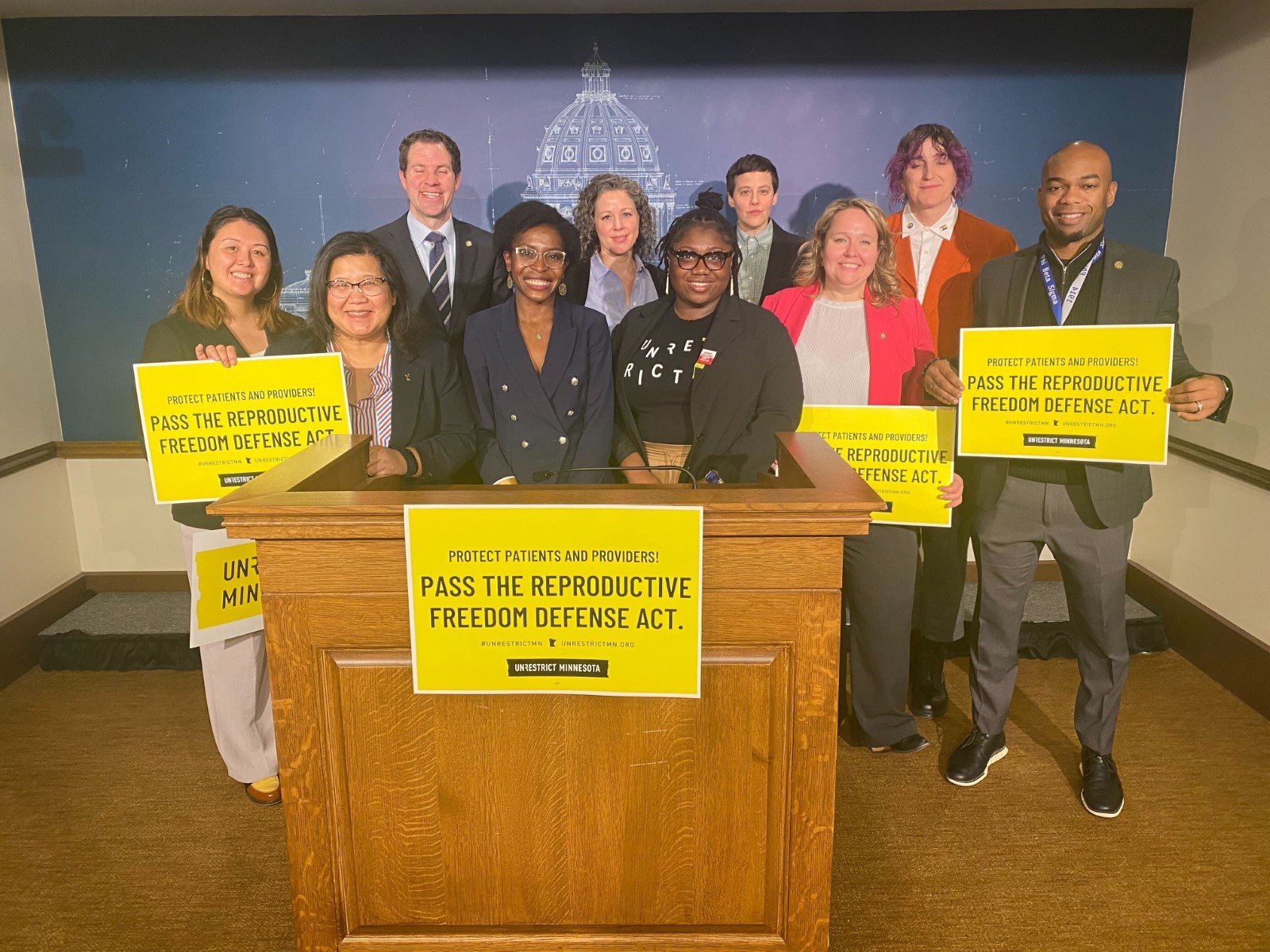
Women’s History Month
March is Women's History Month! Let’s use this month to remember and honor all of the amazing women who paved the way for us. There is still a lot of work we need to do to stand up for equal rights in Minnesota and I am committed to pursuing this important work at the Capitol.
Women throughout history have created opportunities for me and so many others. This month is an opportunity to learn about our great leaders, activists, and pioneers who have worked hard to ensure women are recognized and that future generations will learn (with accuracy) the contributions women throughout the world have made. Women’s History Month empowers young girls around the nation with courage, self-esteem, and willpower to walk in our ancestors’ footsteps. Our history will also inspire current and future generations to emulate the women who laid the framework for us to succeed, be treated equitably, and be recognized in society.
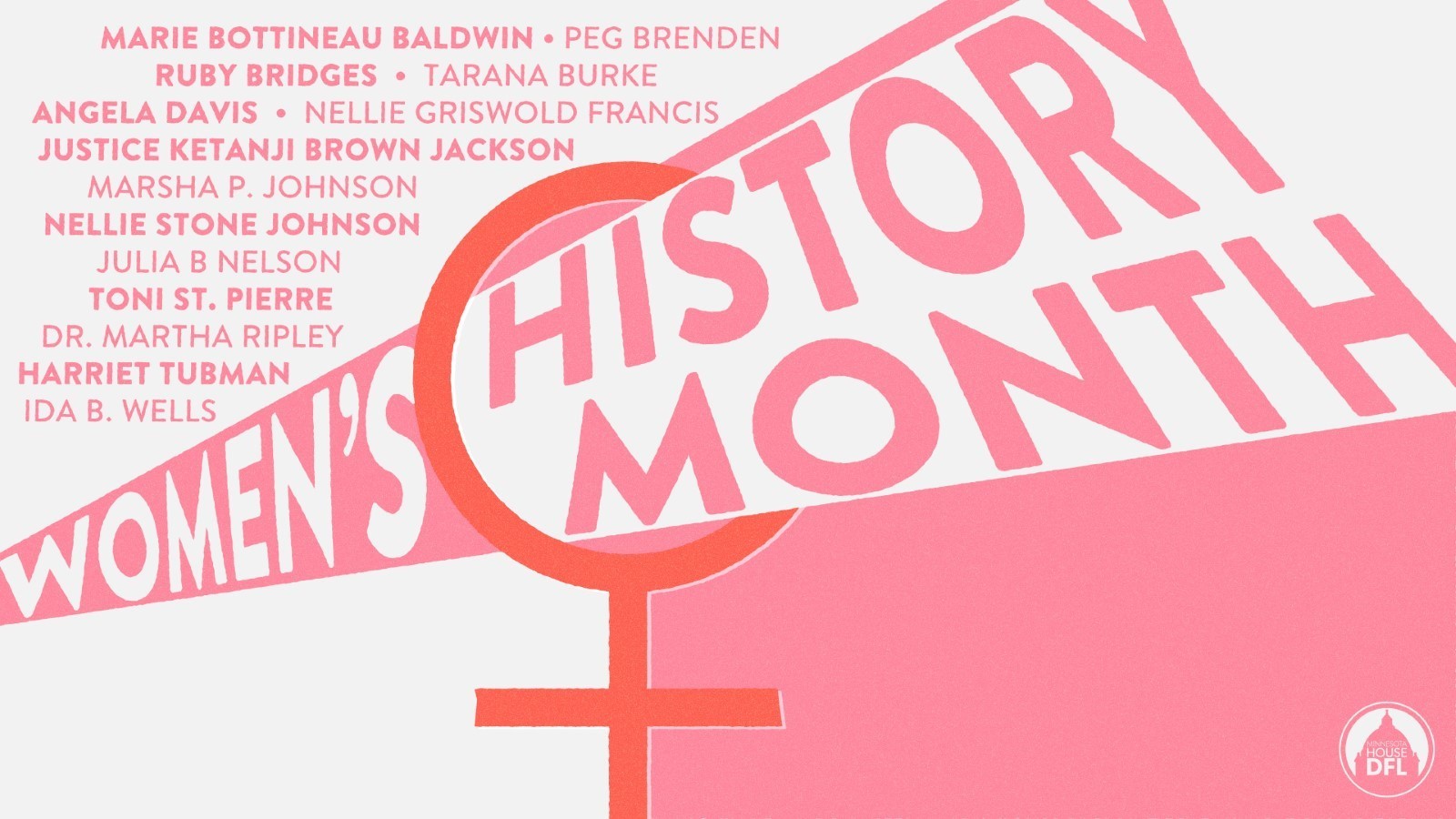
Minnesota Indian Family Preservation Act
On March 9, the Minnesota House unanimously passed the Minnesota Indian Family Preservation Act, protecting Indigenous children and ensuring they continue to have a lifeline to their culture.
There’s a dark, ugly history around separating children from their tribal nations, and this legislation is an important part of having honest, educational conversations about the experiences of Indigenous people. The erasure of Indigenous people and Tribal Nations isn’t only in our past; it is firmly in our present.
The bill was sent to Governor Walz’s desk to be signed into law. Congratulations to our native and Indigenous relatives for this historic and monumental win. I applaud my colleagues of the Native American Legislative Caucus for their outstanding and dedicated work on the matter.
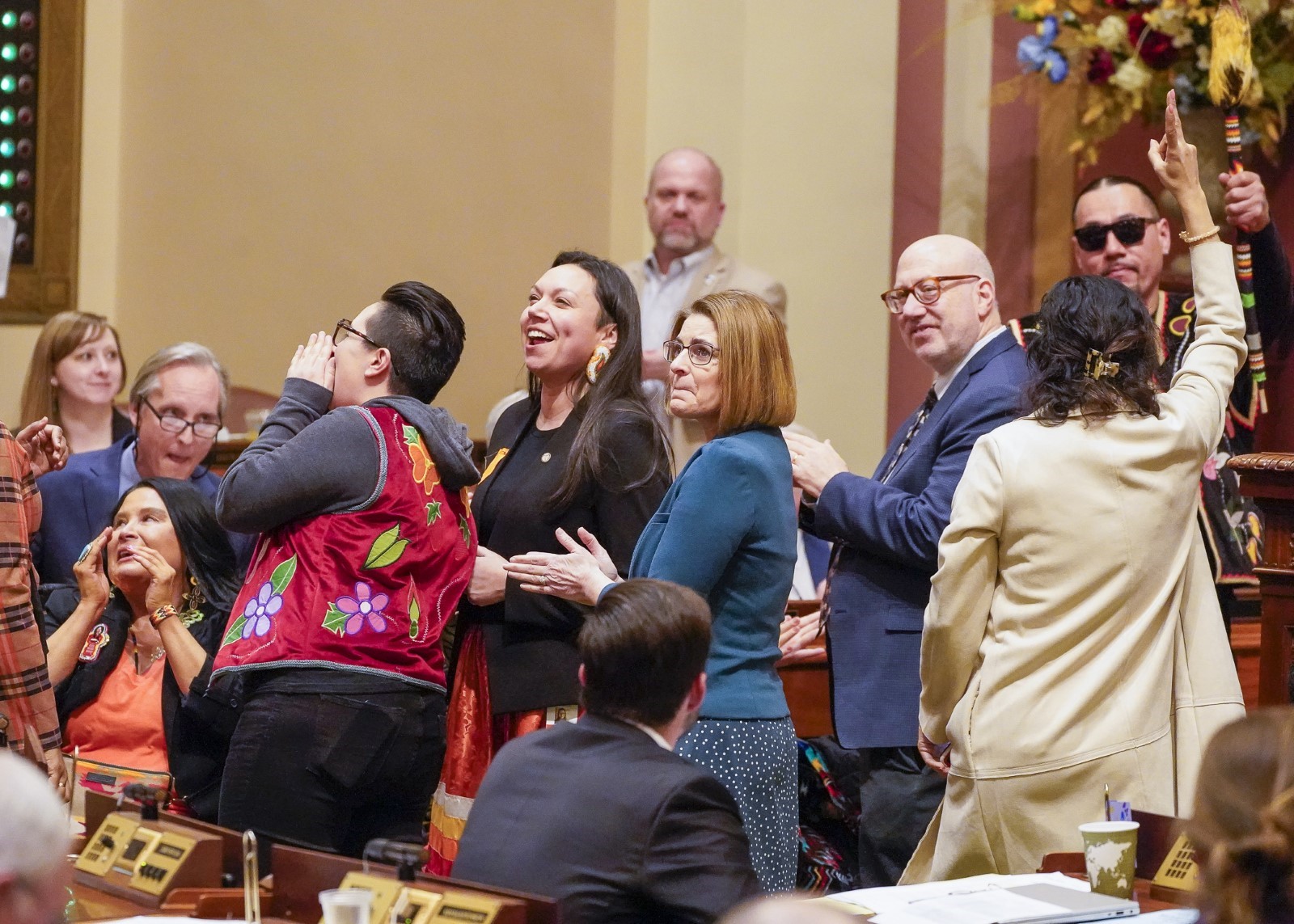
$50 million in Emergency Rental Assistance
In the face of skyrocketing evictions and rent increases, the Minnesota House of Representatives passed House File 1440, which delivers $50 million in emergency rental assistance to the state’s Family Homeless Prevention and Assistance Program. The bill passed on a bipartisan vote of 73-50.
Through much of the pandemic, federal rental assistance allowed Minnesotans to maintain housing stability. Many of those funds dried up in January of 2022, but the economic challenges facing low-income families did not. As a result, Minnesota experienced a skyrocketing eviction rate last year with more than 20,000 filed. Many counties across the state have seen 100% increases in eviction filings over pre-pandemic levels including Pipestone, Grant, Olmstead, Clay, Wadena, Chippewa, Roseau, Jackson and Yellow Medicine County. In the metro area, Hennepin County experienced a 268% increase in families experiencing homelessness, highlighting the immense and growing crisis. Every Minnesotan deserves a safe, warm roof over their head, and this funding will help many families who are in need.
Investing in Local Jobs and Projects
Last session, a bipartisan agreement was reached on the framework of legislation to invest in local jobs and projects throughout Minnesota, but like many important proposals, Republican leadership chose to walk away instead of completing this work. Efforts to deliver on the legislation never stopped for DFLers, and now the Minnesota House has taken the first bipartisan step in finishing the business of 2022 by approving nearly $1.9 billion in investments for local jobs and projects throughout the state.
The package of legislation we passed addresses hundreds of critical infrastructure projects gone unfunded for too long, including many in our community. There are leaky roofs in state buildings, an outdated campus chemistry laboratory, unstable riverbanks, kids taking unsafe routes to schools, housing that needs to be built for our most vulnerable and failing wastewater infrastructure. The bill also takes great strides to invest in Black, Indigenous, and Communities of Color - communities too often left behind when it comes to state investments.
These and other projects are crucial to communities throughout the state, and inflation is only causing them to go up higher in cost the longer we delay. This legislation requires a supermajority to pass, meaning the Senate, like the House, will need Republican support to get this funding over the finish line. Last week, however, Senate Republicans chose gridlock over investments and uniformly voted to defeat the package. I hope you’ll join me in calling on Senate Republicans to reconsider and swiftly pass this legislation. We need to finish the work of 2022 so we can move on to the business of 2023.
You can read more about this legislation and the path ahead here.
Keep in Touch
Please continue to reach out anytime if you need assistance or have questions at rep.athena.hollins@house.mn.gov or 651-296-4224. You can also follow my official Facebook page.
In community,
Rep. Athena Hollins
Minnesota House of Representatives
Legislative Assistant:
Abdullahi Abdullahi
Abdullahi.Abdullahi@house.mn.gov
651-296-5355